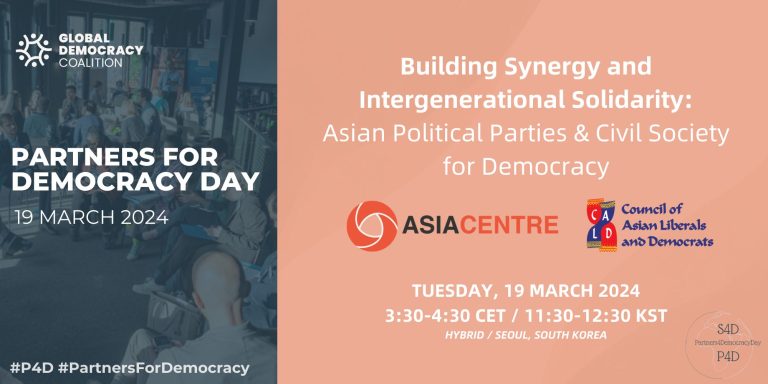In a year when almost half of the world’s population goes to the polls, unity among democratic actors across sectors and generations becomes more important than ever, especially in the face of continuing and intensifying right-wing populism and authoritarianism.
Asia has witnessed crucial elections recently – including the ones in The Philippines, Taiwan and Indonesia – where generational and sectoral cleavages have been (and continue to be exploited) by illiberal forces for electoral gains. The Philippines’ May 2022 elections saw the return to power of a former dictator’s son and namesake who received overwhelming support across classes and generations. In Taiwan’s January 2024 elections, a third force candidate with a penchant for making controversial and divisive remarks gained significant support from first-time voters. Similarly, in Indonesia, a presidential candidate with a questionable human rights record won the February 2024 elections, riding on his popularity among the youth. In South Korea, the youth’s pervasive anxiety about the future is compounded by their disconnection with the candidates in the upcoming April 2024 elections, many of whom belong to the older generation.
In all these countries, mainstream political parties are viewed less favorably by the youth and the broader civil society, as they are perceived as “traditional” or “part of the establishment.” To a certain extent, such views were warranted. A number of established political parties have been involved in corruption and other controversies, and have proved largely incapable of addressing youth issues such as job security, housing affordability, gender equality, climate change, among others. It must be said, however, that the disconnect between political parties and the youth can be due to broader societal changes, such as the use of technology and the rise of social media, which radically change the way people interact, organize and participate in politics.
The cases of The Philippines, Taiwan, Indonesia and South Korea reflect a broader trend in the Asian region – the lack of intersectoral and intergenerational unity among democratic forces amidst the threats coming from illiberalism, populism and authoritarianism.
It is in this light that the Council of Asian Liberals and Democrats (CALD) and Asia Centre organized a panel that brings together political party leaders, academics and civil society activists from different generations to facilitate understanding and open possibilities for cooperation. More specifically, the panel aimed at achieving the following objectives:
- To generate a consensus among political party, academic and civil society representatives across generations on the most important democratic challenges in Asia today;
- To build trust and facilitate understanding among these democratic actors so they can possibly work together in addressing democratic challenges; and
- To come up with a list of recommendations on how to foster democratic unity across sectors and generations.
Speakers:
James Gomez, Regional Director, Asia Centre (Thailand)
Alysa Chiu, Deputy Director, Department of International Affairs, Democratic Progressive Party (Taiwan)
Jeremiah Tomas, CALD Youth Chairperson (Philippines)
Jieun Jeong , Researcher, Ilmin International Relations Institute, Korea University (South Korea)
Celito Arlegue, Executive Director, CALD (Philippines)
*For more information, please contact Celito Arlegue (lito_arlegue@cald.org)

